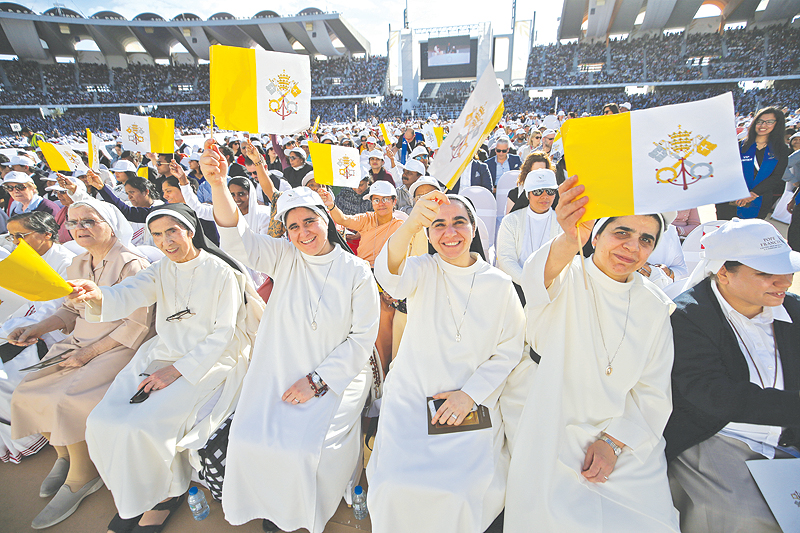VATICAN CITY: Pope Francis said yesterday he hoped his historic trip to the Arabian peninsula will help dispel the notion of an inevitable clash of civilizations between Christianity and Islam. Francis returned to Rome on Tuesday from the United Arab Emirates, where in Abu Dhabi he presided at the largest public Mass ever celebrated on the peninsula where Islam was born.

"In an era, like ours, where there is a strong temptation to see a clash between Christian civilization and the Islamic one, and even to consider religions as a source of conflict, we wanted to send another clear and decisive signal that encounter is possible," he said at his regular general audience. Francis was referring to a document he signed during the trip with Sheik Ahmad el-Tayeb, grand imam of Egypt's al-Azhar mosque and university, one of the most authoritative theological and educational institutions in Islam.
The pope said the "Document on Human Fraternity" was proof that "it is possible to respect each other and hold dialogue, and that despite differences in culture and traditions, the Christian and Islamic worlds appreciate and protect common values …" The document, signed on Monday, called on "all concerned to stop using religions to incite hatred, violence, extremism and blind fanaticism, and to refrain from using the name of God to justify acts of murder, exile, terrorism and oppression."
He invited everyone to read the document, saying it would offer ideas on how individuals can work for tolerance and coexistence. Ultra-conservative Catholics have been opposed to any dialogue with Islam, with some saying its ultimate goal is to destroy the West. On the plane returning from Abu Dhabi on Tuesday, a reporter asked Francis about possible negative reaction to the document by Catholics "who accuse you of allowing yourself to be used by Muslims".
Francis, a progressive who has been in the crosshairs of conservatives since his election in 2013, responded with a joke: "Not only the Muslims. They accuse me of allowing myself to be used by everyone, even journalists. It's part of the job." But he said "from a Catholic point of view, the document had not strayed a millimeter" from teachings on inter-religious dialogue approved by the 1962-1965 Second Vatican Council. "If anyone feels bad, I understand. It is not an everyday thing. But it is a step forward," he said on the plane. - Reuters










